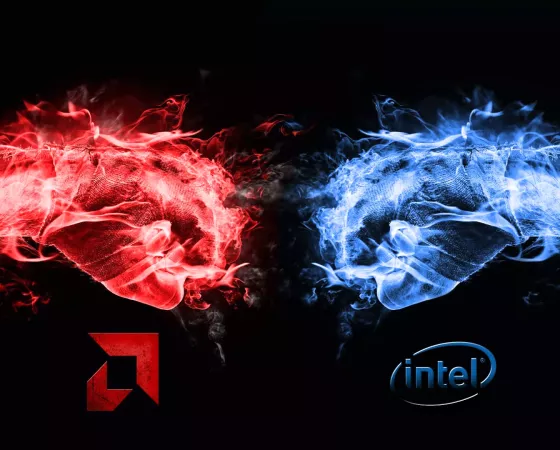Vue lecture
Microsoft Copilot Joins ChatGPT At the Feet of the Mighty Atari 2600 Video Chess
Read more of this story at Slashdot.
'Stop Killing Games' Consumer Movement Hits Major Milestones
Read more of this story at Slashdot.
Nearly 1,000 Britons Will Keep Four-Day Work Week After Trial
Read more of this story at Slashdot.
Google Ends Recipe Pilot That Left Creators Fearing Web-Traffic Hit
Read more of this story at Slashdot.
Fedora Linux Looks To End Support For UEFI On MBR-Paritioned Disks
ChatGPT Creates Phisher's Paradise By Recommending the Wrong URLs for Major Companies
Read more of this story at Slashdot.
Researchers Caught Hiding AI Prompts in Research Papers To Get Favorable Reviews
Read more of this story at Slashdot.
A Lot of Product Makers Snub Right To Repair Laws
Read more of this story at Slashdot.
House Passes Bill That Slashes Solar, Wind and EV Tax Credits
Read more of this story at Slashdot.
Developer Accused of Defrauding YC Companies Through Simultaneous Employment Scheme
Read more of this story at Slashdot.
15 processeurs AMD Ryzen se font remuer en applicatif et en gaming, bilan pré-estival !
 L'achat d'un processeur ne se fait jamais à la légère. Il y a d'une part la plateforme et son évolution, les performances en applicatif et en gaming sur divers scénarios, l'attachement à une marque plus qu'à une autre, des promos ponctuelles qui changent la donne, et enfin le prix en général, qui es...
L'achat d'un processeur ne se fait jamais à la légère. Il y a d'une part la plateforme et son évolution, les performances en applicatif et en gaming sur divers scénarios, l'attachement à une marque plus qu'à une autre, des promos ponctuelles qui changent la donne, et enfin le prix en général, qui es...
Scientists Warn US Will Lose a Generation of Talent
Read more of this story at Slashdot.
Citi Spends $9 Billion on Tech Overhaul After Series of Costly Errors
Read more of this story at Slashdot.
Samsung Working on Three-Panel Smartphone
Read more of this story at Slashdot.
Let's Encrypt Rolls Out Free Security Certs For IP Addresses
Read more of this story at Slashdot.
☕️ En 2026, la PlayStation 5 Pro profitera d’un FSR 4 maison
FSR, pour FidelityFX Super Resolution, est la version AMD du DLSS de NVIDIA, des solutions de mise à l’échelle. La quatrième version de FSR a été annoncée en mars, en même temps que les Radeon RX 9070 et 9070 XT. Le fabricant précisait alors que cette technologie serait « disponible exclusivement sur les cartes graphiques AMD Radeon RX Série 9000 ».
Dans une interview accordée à Tom’s Guide, Mark Cerny (architecte en chef des consoles PlayStation 5 et 5 Pro) parlait de l’avenir du PSSR (PlayStation Spectral Super Resolution), la fonction d’upscaling maison exclusivement disponible sur les consoles PS5 Pro.

Ce projet porte le nom de code : Amethyst, « un partenariat pluriannuel entre AMD et Sony qui a débuté en 2023 », indiquent nos confrères. Sony apporte sa connaissance du monde des consoles et des jeux vidéo, AMD celui des GPU. « Les deux sociétés peuvent utiliser librement les résultats de la collaboration dans leur propre travail, comme AMD l’a déjà fait en publiant FSR 4 », explique Tom’s Guide.
L’algorithme co-développé par les deux partenaires « a donc déjà été publié par AMD sous la forme de FSR 4 sur PC. Et nous sommes en train de le mettre en œuvre sur PS5, il sortira l’année prochaine sur PS5 Pro », explique Mark Cerny
Le responsable insiste sur un point : « Il ne s’agit pas d’une version limitée de l’algorithme […] C’est la version complète de la Super Résolution que nous sortirons sur PS5 Pro ». À voir maintenant quand la mise à jour sera effectivement déployée et les résultats qu’elle proposera.
Pour son procès contre OpenAI, le New York Times va analyser les logs supprimés de ChatGPT

Dans l’affaire opposant le journal étasunien à l’entreprise d’IA générative, le New-York Times a obtenu la possibilité d’analyser tous les logs de ChatGPT afin de trouver d’éventuelles preuves de violation de copyright.
Aux États-Unis, le procès intenté par le New-York Times contre OpenAI pour violation de copyright continue depuis la plainte déposée en décembre 2023.
Le journal va finalement pouvoir fouiller dans les logs du Chatbot d’OpenAI à la recherche de preuves de violation du copyright des articles publiés sur son site, selon ArsTechnica.
En mai, le juge en charge de l’affaire a ordonné à OpenAI de préserver « tous les journaux de sorties qui devraient normalement être supprimés » et ce « jusqu’à nouvel ordre de la Cour ». Cela concerne toutes les données que l’entreprise d’IA générative supprime d’habitude, « que ces données soient supprimées à la demande d’un utilisateur ou en raison de « nombreuses lois et réglementations sur la protection de la vie privée » qui pourraient exiger qu’OpenAI le fasse », précisait-il.
L’entreprise avait publié un billet affirmant que cette décision allait « fondamentalement à l’encontre des engagements que [elle a] pris envers [ses] utilisateurs en matière de protection de la vie privée. Elle abandonne des normes de longue date en matière de respect de la vie privée ».
Un dilemme pour OpenAI
Si officiellement, OpenAI veut « continuer de se battre », la seule possibilité de contrer cette demande aurait de faibles chances d’aboutir, selon ArsTechnica. Le problème de l’entreprise d’IA générative est d’être prise dans un dilemme : soit elle continue la bataille et garde pendant longtemps des données qu’elle considère sensibles, soit elle laisse le journal accéder à certaines données de ses utilisateurs.
Pour autant, le New-York Times ne pourra pas accéder à l’entièreté de la base de données d’OpenAI. Les deux entreprises vont devoir se mettre d’accord sur un processus pour que le journal accède à certaines données qui lui permettent d’illustrer des cas manifestes d’infraction au copyright. Ainsi, l’équipe juridique du média devrait par exemple pouvoir faire des recherches sur certains mots clés ou certaines informations. De même, les données resteront sur les serveurs d’OpenAI et seront anonymisées.
À la recherche de preuves de concurrence déloyale
Rappelons que la plainte du New York Times concerne l’utilisation par OpenAI et Microsoft de millions de ses articles pour entraîner leur famille de grands modèles de langage (Large language models, LLM) GPT utilisée par ChatGPT, Bing Chat et Copilot. Elle accuse les entreprises de lui faire ainsi une concurrence déloyale en renvoyant les contenus de ses articles à leurs utilisateurs.
Le journal cherche donc dans les logs des preuves que le chatbot d’OpenAI est utilisé massivement pour accéder aux contenus dont il a le copyright. Toute cette histoire autour de l’accès aux journaux d’OpenAI pourrait permettre au New York Times d’argumenter contre la logique du fair use.
Celui-ci peut tenir face aux accusations d’utilisation de contenus copyrightés, comme le montrent deux décisions de la justice étasunienne récentes. Mais dans l’un de ces cas, l’un des juges a expliqué qu’à ses yeux, la concurrence déloyale pouvait être un argument « potentiellement gagnant ».
☕️ En 2026, la PlayStation 5 Pro profitera d’un FSR 4 maison
FSR, pour FidelityFX Super Resolution, est la version AMD du DLSS de NVIDIA, des solutions de mise à l’échelle. La quatrième version de FSR a été annoncée en mars, en même temps que les Radeon RX 9070 et 9070 XT. Le fabricant précisait alors que cette technologie serait « disponible exclusivement sur les cartes graphiques AMD Radeon RX Série 9000 ».
Dans une interview accordée à Tom’s Guide, Mark Cerny (architecte en chef des consoles PlayStation 5 et 5 Pro) parlait de l’avenir du PSSR (PlayStation Spectral Super Resolution), la fonction d’upscaling maison exclusivement disponible sur les consoles PS5 Pro.

Ce projet porte le nom de code : Amethyst, « un partenariat pluriannuel entre AMD et Sony qui a débuté en 2023 », indiquent nos confrères. Sony apporte sa connaissance du monde des consoles et des jeux vidéo, AMD celui des GPU. « Les deux sociétés peuvent utiliser librement les résultats de la collaboration dans leur propre travail, comme AMD l’a déjà fait en publiant FSR 4 », explique Tom’s Guide.
L’algorithme co-développé par les deux partenaires « a donc déjà été publié par AMD sous la forme de FSR 4 sur PC. Et nous sommes en train de le mettre en œuvre sur PS5, il sortira l’année prochaine sur PS5 Pro », explique Mark Cerny
Le responsable insiste sur un point : « Il ne s’agit pas d’une version limitée de l’algorithme […] C’est la version complète de la Super Résolution que nous sortirons sur PS5 Pro ». À voir maintenant quand la mise à jour sera effectivement déployée et les résultats qu’elle proposera.
Pour son procès contre OpenAI, le New York Times va analyser les logs supprimés de ChatGPT

Dans l’affaire opposant le journal étasunien à l’entreprise d’IA générative, le New-York Times a obtenu la possibilité d’analyser tous les logs de ChatGPT afin de trouver d’éventuelles preuves de violation de copyright.
Aux États-Unis, le procès intenté par le New-York Times contre OpenAI pour violation de copyright continue depuis la plainte déposée en décembre 2023.
Le journal va finalement pouvoir fouiller dans les logs du Chatbot d’OpenAI à la recherche de preuves de violation du copyright des articles publiés sur son site, selon ArsTechnica.
En mai, le juge en charge de l’affaire a ordonné à OpenAI de préserver « tous les journaux de sorties qui devraient normalement être supprimés » et ce « jusqu’à nouvel ordre de la Cour ». Cela concerne toutes les données que l’entreprise d’IA générative supprime d’habitude, « que ces données soient supprimées à la demande d’un utilisateur ou en raison de « nombreuses lois et réglementations sur la protection de la vie privée » qui pourraient exiger qu’OpenAI le fasse », précisait-il.
L’entreprise avait publié un billet affirmant que cette décision allait « fondamentalement à l’encontre des engagements que [elle a] pris envers [ses] utilisateurs en matière de protection de la vie privée. Elle abandonne des normes de longue date en matière de respect de la vie privée ».
Un dilemme pour OpenAI
Si officiellement, OpenAI veut « continuer de se battre », la seule possibilité de contrer cette demande aurait de faibles chances d’aboutir, selon ArsTechnica. Le problème de l’entreprise d’IA générative est d’être prise dans un dilemme : soit elle continue la bataille et garde pendant longtemps des données qu’elle considère sensibles, soit elle laisse le journal accéder à certaines données de ses utilisateurs.
Pour autant, le New-York Times ne pourra pas accéder à l’entièreté de la base de données d’OpenAI. Les deux entreprises vont devoir se mettre d’accord sur un processus pour que le journal accède à certaines données qui lui permettent d’illustrer des cas manifestes d’infraction au copyright. Ainsi, l’équipe juridique du média devrait par exemple pouvoir faire des recherches sur certains mots clés ou certaines informations. De même, les données resteront sur les serveurs d’OpenAI et seront anonymisées.
À la recherche de preuves de concurrence déloyale
Rappelons que la plainte du New York Times concerne l’utilisation par OpenAI et Microsoft de millions de ses articles pour entraîner leur famille de grands modèles de langage (Large language models, LLM) GPT utilisée par ChatGPT, Bing Chat et Copilot. Elle accuse les entreprises de lui faire ainsi une concurrence déloyale en renvoyant les contenus de ses articles à leurs utilisateurs.
Le journal cherche donc dans les logs des preuves que le chatbot d’OpenAI est utilisé massivement pour accéder aux contenus dont il a le copyright. Toute cette histoire autour de l’accès aux journaux d’OpenAI pourrait permettre au New York Times d’argumenter contre la logique du fair use.
Celui-ci peut tenir face aux accusations d’utilisation de contenus copyrightés, comme le montrent deux décisions de la justice étasunienne récentes. Mais dans l’un de ces cas, l’un des juges a expliqué qu’à ses yeux, la concurrence déloyale pouvait être un argument « potentiellement gagnant ».